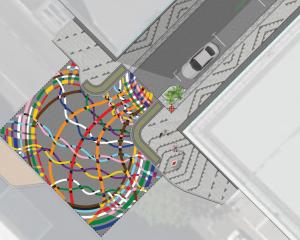
The extinct giant penguins - which scientists have dubbed Kairuku- featured in a cover article published in the international Journal of Vertebrate Paleontology this week.
Prof Fordyce, of the Otago geology department, has since been fielding media phone calls and emails from many parts of the world, including England, Canada and Spain as interest in the giant penguins has soared.
Kairuku stood 1.3m tall - 30cm taller than its nearest modern-day rival, the emperor penguin, of the Antarctic.
And, with its spear-like bill, it weighed at least 60kg - 50% heavier than the emperor penguin.
The Kairuku - a Maori word loosely translated as "diver who returns with food" - probably became extinct from its New Zealand habitat between 24 million and 25 million years ago.
At least four Kairuku penguins are known and many of the respective fossilised bones, found in South Canterbury and North Otago, were combined in the reconstructed composite skeleton.
This was the first almost-complete reconstruction of extinct giant penguin bones, giving researchers new insight into the prehistoric creatures.
New Zealand had clearly become an international "hot spot" for the discovery of important fossils of ancient sea creatures, Prof Fordyce said.
Such finds were "the envy of paleontologists around the world", and the extensive media coverage was positive for New Zealand and North Otago tourism.
"There aren't many final frontiers. New Zealand is one of them."
The first find that led to the reconstructed skeleton involved a 27 million-year-old fossilised bone, only 10cm long, which he spotted "by chance" in a cliff near Waimate, South Canterbury, in 1977, when he was an Otago PhD student looking for fossil whale bones.
After returning to Otago as a staff member in 1982, he went back and removed the rest of the bone fossils embedded in the rock.
That and other later finds were now displayed in the university's Geology Museum.
Prof Fordyce led the research project and the article's first author is Dr Dan Ksepka, of North Carolina State University.












